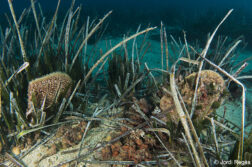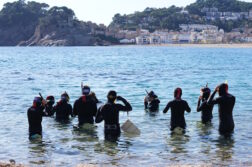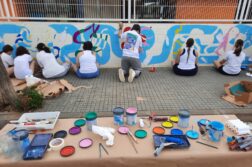There are seven species of sea turtles in the world, of which six can be seen in Spain. However, only the loggerhead sea turtle (Caretta caretta) and the leatherback sea turtle (Dermochelys coriacea) are frequently detected in national waters. About the other species, little information is available. For this reason, citizen collaboration plays a fundamental role in obtaining data that serves to know their distribution, reproduction and threats, to improve their conservation.
To facilitate the collection of reports, the Observadores del Mar marine citizen science platform opens the new Sea Turtles project, where anyone can send information and images of sightings of healthy or injured turtles through the website www.observadoresdelmar.es.
In addition, an increase in the number of turtle nests on Spanish beaches has been detected in recent years, a phenomenon that may be more frequent than expected. This increase in nesting highlights the importance of communicating to the public how to act in these cases to guarantee the safety of the nests.
“Sea turtles are arriving more frequently in our waters, their diversity is increasing and their nesting on our beaches is becoming a reality. We are very excited about this initiative by Observadores del Mar, as it could be decisive in improving the information available about them and our ability to better protect them,” says Adolfo Marco, head of the scientific team of the Sea Turtles project and researcher at the Doñana Biological Station (EBD CSIC).
With this new project, Observadores del Mar calls on citizens to report information on sightings of healthy or injured turtles, and the presence of nests on the beaches. Centralizing this information is essential to design better protection and rescue strategies.
The Spanish Sea Turtle Platform, the Doñana Biological Station (EBD-CSIC) and several experts from all the Spanish coastal autonomous communities collaborate in the project.
About Observadores del Mar
Observadores del Mar is coordinated by marine research centres from the Spanish National Research Council, CSIC (Institut de Ciències del Mar, ICM; Centre d’Estudis Avançats de Blanes, CEAB; Institut Mediterrani d’Estudis Avançats, IMEDEA; Instituto Español de Oceanografía, IEO; and Sistema de Observación Costero de las Illes Balears, SOCIB) and has the participation of experts from different national and international research centers. In total, a hundred scientists are responsible for validating all the information that citizens upload to the platform.
Likewise, Observadores del Mar is a partner of the LIFE INTEMARES project, coordinated by the Biodiversity Foundation of the Ministry for the Ecological Transition and the Demographic Challenge. In the Balearic Islands, the platform has an alliance with the Marilles Foundation, and in the Canary Islands it actively collaborates with RedPromar, to strengthen marine citizen science on all the islands.





